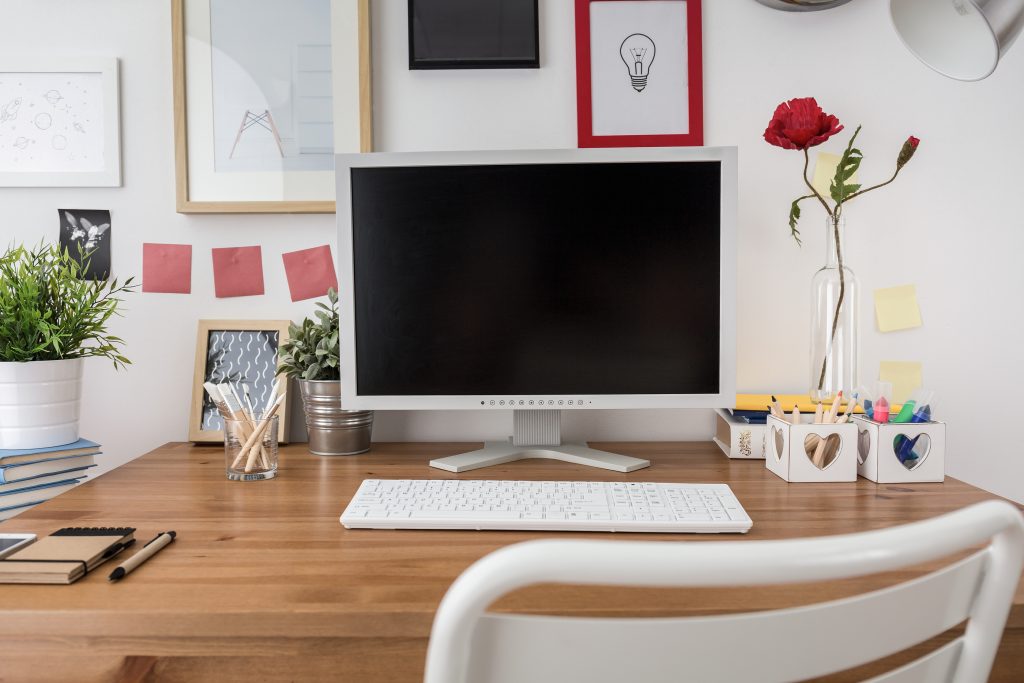
For a long time I thought that clearing clutter was simply my preferred method of procrastination. But now that I have adopted minimalism as a lifestyle, I clearly see the connection between needing a clean space in order to think clearly. I’ve always enjoyed the process of paring down and organizing my belongings, especially when I’ve had a looming deadline or a big test to study for. The clutter in the room was always a distraction, and once it was gone I felt ready to work and focus in a way I couldn’t otherwise. Researchers at the Princeton University Neuroscience Institute have found that clutter does affect our ability to focus and be productive. Clutter is more than an annoyance, it’s a serious roadblock for getting things done.
One evening I found myself in the mood for organizing and came across a TEDx Talk from The Minimalists. Soon, what started as cleaning out my desk drawer turned into a hunt for all the unnecessary items I could purge from my life, and it’s been that way ever since.
Since taking my decluttering to a new and more deliberate level (so not just when I have something else I ought to be doing), I have found that an organized workspace gives me more room for creativity. Keeping a neat to-do list in a place where I can see it keeps my thoughts clear and concise. Having fewer gadgets in my kitchen makes me more likely to cook. A closet full of clothes I really love helps me get dressed with ease. Living without clutter is a whole different ballgame. I’m focused, I’m quick, I’m ready to get stuff done.
Which is why minimalism has been a game-changer for me.
RELATED: 6 Easy Ways to Decorate Your Apartment on a Budget
Instead of random spurts of cleaning and purging, I make it a point to regularly question whether or not the items I surround myself with are truly necessary. Instead of impulse buying, I carefully consider my purchases based on need and true desire. I look at the items I already own and determine if they add value to my life — and this constant internal questioning has led to an increase in self-awareness, productivity, and happiness. I have become especially fond of the KonMari method, which asks if each item “sparks joy” and gives you permission to rid yourself of what doesn’t by thanking the item for serving its purpose and sending it on to a new life. It sounds corny, but it really works, both alleviating guilt and keeping my house organized. I am no longer digging past an unnecessary ravioli cutter to find the whisk I actually need or sifting through ill-fitting dresses in my closet looking for something to wear.
RELATED: Don’t Start the Day Overwhelmed
I’ve eliminated more than 60% of my closet, a bevy of unnecessary kitchen gadgets, most of my books, tons of knick knacks, crafting supplies, beauty supplies, all those “just in case” items I thought I’d use someday, and even the bulk of my sentimental memorabilia (yes, goodbye movie ticket stubs and old camp photos of people whose names I don’t remember). And still, I am constantly on the hunt for something else to get rid of in hopes of a more simple and purposeful life. Because the less I own, the more space I have, not just physically, but mentally as well.
Developing this lifestyle has taken time and is constantly a work in progress. I don’t think I’ll ever reach a minimalist finish line or stop searching for the next level of simplicity, but finishing is not the point. Minimalism is about taking control of my life and my mental space, one piece of clutter at a time.
Originally published on September 23, 2016.